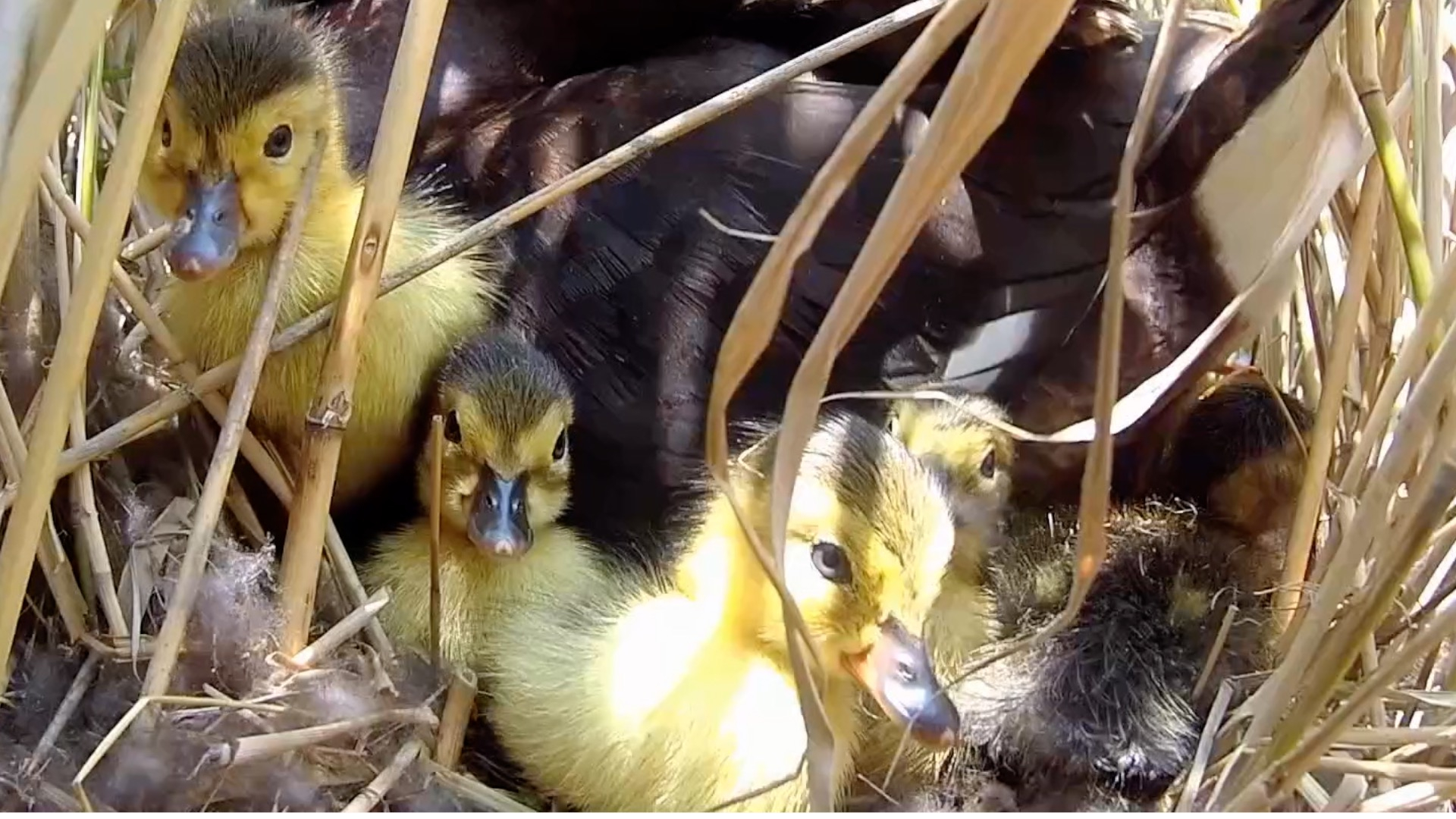

The successful breeding of the critically-endangered Baer's Pochard, a migratory duck, was reported by Minquan Yellow River National Wetland Reserve in central China's Henan Province.
The bird is facing a severe risk of extinction with barely 1,000 individual ducks left in the world. Park authorities provided maximum security during the entire hatching period, keeping predators away and ensuring no human intervention near the bird's nest.
Last week, a female duck with six ducklings were seen around the site, diving and feeding on the underwater vegetation, park authorities said in a statement. They also released video footage of the ducklings.
Researchers have collected ecological data to support duck population monitoring, habitat protection, and reproductive biology research.
The park ensures minimum human activity and maintains the original ecology. The water quality is also clear, and food resources are abundant for the ducks to thrive, said Li Jie, director of the Wetland Park Administration.
Alarmed over the depleting population of Baer's Pochard, the Alashan Society of Entrepreneurs and Ecology Foundation and the China Baer's Pochard Protection Working Group started monitoring and protection work in the wetland park from 2018 to 2019.
The first sighting of the Baer's Pochard at Minquan was reported in 2016. The Minquan county government, along with the National Wetland Park Administration of Henan Minquan Yellow River launched an initiative to revive the bird's population.
The highest number recorded at the site so far was 155 during the winter of 2018, accounting for more than 15 percent of the global population.
"In the past two years, a total of 133 species of bird have been detected in the wetland park," Li Jie added.
Globally, there is a lack of awareness about the Baer's Pochard – a diving duck that once thrived in eastern Asia. The bird's population started declining in the 1980s, with its numbers decimated by more than 90 percent, making it rarer than the giant panda, according to International Union for Conservation of Nature.
Cover: A Baer's Pochard duck at a lake in China. /Courtesy of Ding Changqing via China Baer’s Pochard Working Group

Copyright © 2018 CGTN. Beijing ICP prepared NO.16065310-3
Copyright © 2018 CGTN. Beijing ICP prepared NO.16065310-3